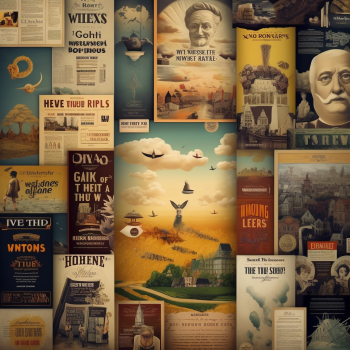The_Day_The_Universe_Changed《变化的每一天》

简述
封面

影片信息
官方网站
暂无
影片原始规格:
- 中文片名 :变化的每一天
- 中文系列名:
- 英文片名 :The Day The Universe Changed
- 英文系列名:
- 电视台 :BBC
- 地区 :英国
- 语言 :英语
- 时长 :约 45 分钟/集
- 版本 :TV
- 发行时间 :1985
影片内容介绍
剧情简介
这部由James Burke制作的记录片与他之前所制作的系列是他做得最好的记录片之一。这部片子从哲学以及科技两方面给我们总体介绍了人类探索世界的历程。这是一部让广大观众认识西方各种思潮如何起源以及如何发展到今天的一个很好的工具。本系列由BBC以及RKO联合出品,主持人将会从古希腊的历史向我们逐一展示西方的思潮。
分集介绍
The Way We Are
Written and presented by James Burke, this 10-part series traces the development of Western thought through its major transformations since the days of ancient Greece. Program one is an overview of the series, showing how a culture’s view of the world around it determines how it sees itself, and is reflected even in the smallest de tails of its customs and habits.
In the Light of the Above
Relates that in the course of overrunning Moorish Spain, Christian Europe discovered libraries, universities, optics, mechanics, and natural philosophy. This rediscovery of classical knowledge led to the founding of universities and the replacement of Augustinian philosophies by Aristotelian theories.
Point of View
Shows that Western Europe’s rediscovery of perspective through the study of Arab optics led to revolutions in art and architecture. The West’s new-found ability to control things at a distance resulted in new methods of warfare and the confidence to make long voyages of exploration.
A Matter of Fact
Observes that the invention of printing and the advent of cheap paper forever transformed the nature of knowledge from the local and traditional to the systematic and testable. Nationalism, public relations, and propaganda are among the results.
Infinitely Reasonable
Notes that investigators such as Copernicus, Kepler, Galileo, and Newton evolved better explanations of natural phenomena than those of Aristotle. Highlights the theories that led to a new conception of how the universe works and of man’s place in it.
Credit Where It’s Due
Locates the origins of contemporary consumerism in the English industrial Revolution, powered by religious dissenters barred from all activities except trade. The invention of the steam engine, new forms of credit, surplus wealth, and opening markets laid the foundation for industrial society.
What the Doctor Ordered
Traces modern society’s recognition of the value of statistics to medical advances stemming from responses to the French Revolution and an English cholera epidemic. Identifies the origins of medicine as a science with the discovery of anesthesia, antiseptics, and bacteriology.
Fit to Rule
Tracks the expectation of change, fundamental to contemporary society, through the developing sciences of botany, geology, and biology to Darwin’s theory of evolution. Darwin’s theory, in turn, has been used as a justification for Nazism, communism, and cut-throat capitalism.
Making Waves
Points out that studies of the properties of magnetism, electricity, and light have led scientists to the realization that Newtonian physics is inadequate to explain all that they observe. The public, meanwhile, has continued to concentrate on the technological by-products of science.
Worlds Without End
Observes that over the centuries Western civilization has regularly shifted its conception of the nature of truth. Citing the example of Nepalese Buddhism, a system as complete and satisfactory of Nepal as science is for the West, the series ends with a plea for tolerance.
截图

参考信息
相关的纪录片
暂无
相关领域
人物 James Burke
| 内容 哲学类 | 哲学 |
|---|---|
| 自然科学类 | 数学 |
| — | — |
| 应用科学类 | 医药 |
| — | — |
网路消息
- The Day the Universe Changed [AUDIOBOOK] [CD] (Audio CD)
http://www.amazon.com/Day-Universe-Changed-James-Burke/dp/1593979797
Category:片名 Category:BBC Category:James Burke Category:1985 Category:1. 哲学类 Category:1.1 哲学 Category:3. 自然科学类 Category:3.1 数学 Category:3.2 天文学 Category:3.3 物理学 Category:3.31 古典物理 Category:3.4 化学 Category:3.7 生物学 Category:4. 应用科学类 Category:4.1 医药 Category:缺翻译